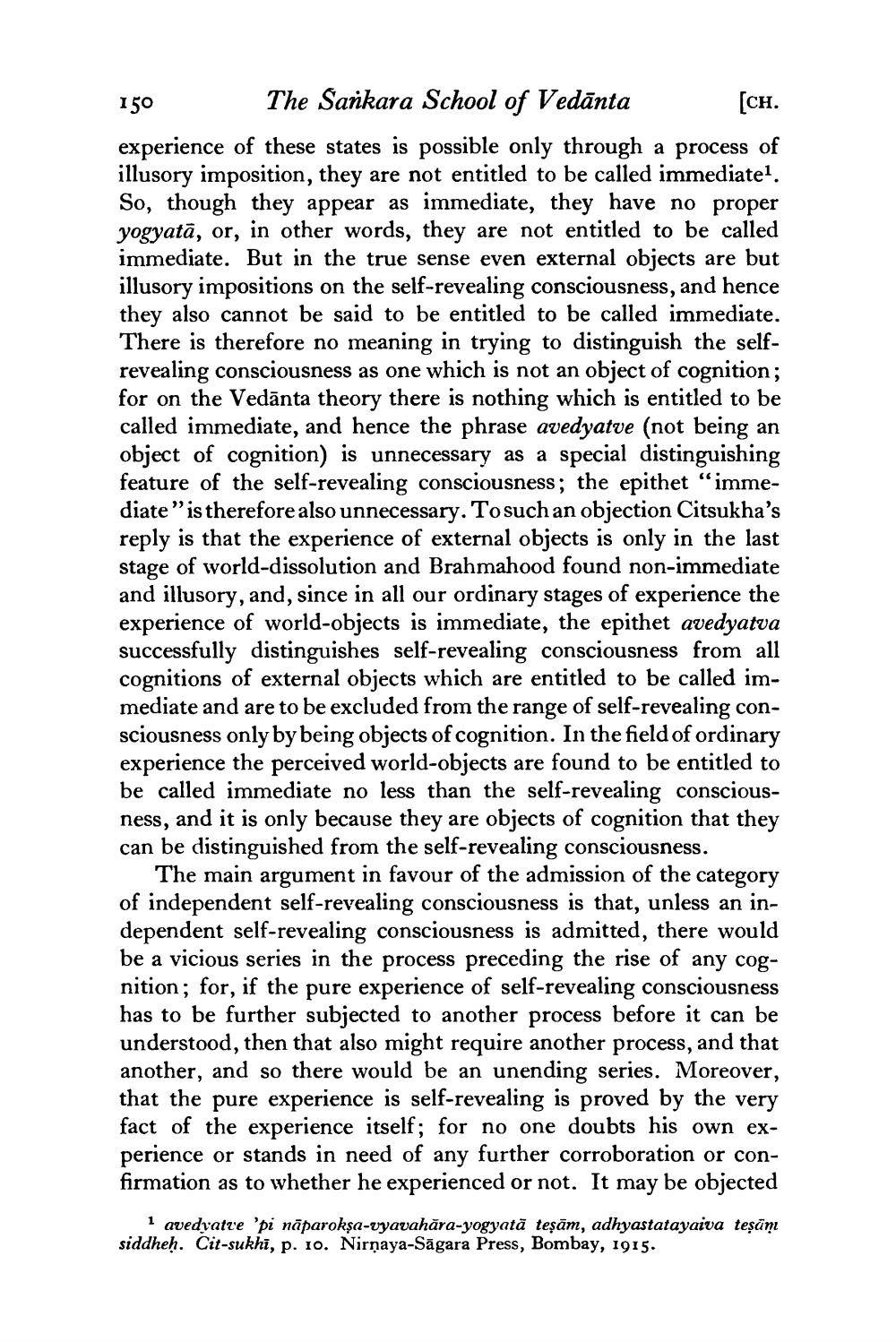________________
The Sankara School of Vedanta
[CH.
experience of these states is possible only through a process of illusory imposition, they are not entitled to be called immediate1. So, though they appear as immediate, they have no proper yogyata, or, in other words, they are not entitled to be called immediate. But in the true sense even external objects are but illusory impositions on the self-revealing consciousness, and hence they also cannot be said to be entitled to be called immediate. There is therefore no meaning in trying to distinguish the selfrevealing consciousness as one which is not an object of cognition; for on the Vedanta theory there is nothing which is entitled to be called immediate, and hence the phrase avedyatve (not being an object of cognition) is unnecessary as a special distinguishing feature of the self-revealing consciousness; the epithet "immediate "is therefore also unnecessary. To such an objection Citsukha's reply is that the experience of external objects is only in the last stage of world-dissolution and Brahmahood found non-immediate and illusory, and, since in all our ordinary stages of experience the experience of world-objects is immediate, the epithet avedyatva successfully distinguishes self-revealing consciousness from all cognitions of external objects which are entitled to be called immediate and are to be excluded from the range of self-revealing consciousness only by being objects of cognition. In the field of ordinary experience the perceived world-objects are found to be entitled to be called immediate no less than the self-revealing consciousness, and it is only because they are objects of cognition that they can be distinguished from the self-revealing consciousness.
The main argument in favour of the admission of the category of independent self-revealing consciousness is that, unless an independent self-revealing consciousness is admitted, there would be a vicious series in the process preceding the rise of any cognition; for, if the pure experience of self-revealing consciousness has to be further subjected to another process before it can be understood, then that also might require another process, and that another, and so there would be an unending series. Moreover, that the pure experience is self-revealing is proved by the very fact of the experience itself; for no one doubts his own experience or stands in need of any further corroboration or confirmation as to whether he experienced or not. It may be objected
150
1 avedvatve 'pi nāparokṣa-vyavahāra-yogyatā teṣām, adhyastatayaiva teṣām siddheḥ. Cit-sukhi, p. 10. Nirnaya-Sāgara Press, Bombay, 1915.




